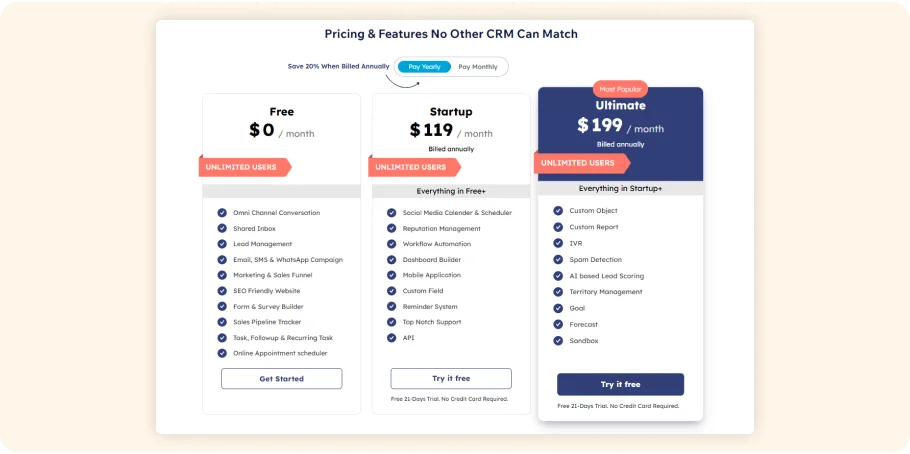The global CRM market is set to hit $98.19 billion by 2025. So, manufacturers see the value of these systems. A full CRM system for manufacturers is essential. It can develop and centralize new data, forecast sales, and manage inventory.
In recent years, the manufacturing business has become more customer-centric. And CRM manufacturing software has become just the right tool to get the job done. It’s not just about making profits now but a reputation too.
What is CRM for manufacturers?
Manufacturing CRM Solution is a specialized approach. It boosts sales and marketing to outpace competitors. It also automates routine tasks with an in-built system.
Manufacturing CRM solve industry challenges. They manage complex supply chains and track inventory. They ensure smooth communication between teams and customers. While there are many CRMs out there, it’s very crucial to be selective. Hence, we have sorted the list to a few and covered the main features, how they can be useful in manufacturing, pros, cons, and pricing.

The 7 Best CRM for Manufacturers are:
1. CrmOne
With Most Affordable CRM, One of the best user interfaces, that has been made by innovating traditional features. It manages the processes, replies to the queries, solves the problems, and lets you take charge of the pressing matters.
Co-ordination among distributors, retailers, and suppliers is vital in the manufacturing process. Each one has different needs and buying behaviors.

Implementing CrmOne will centralize distributor details. You can access the data anytime, from anywhere. It will even check emails, chat conversations, website visits, and more.
Manufacturers face complex tasks. They select raw materials, design the product, produce parts, assemble, and test. Every process needs data such as the price of each item, the labor cost, the machinery costs, etc. So, who is going to remember all that? If you want to do that work manually, then you are welcoming a lot of stress. Let CrmOne take care of all that.
Note: Research indicates that organizations using CRM systems report a 27% increase in customer satisfaction.
It’s a fact, that your team or you won’t be available 24×7, even if you are; what if there is an urgent customer query and you are on lunch break? The AI chatbots can help you with that.
It can chat for you, send and collect details, and share info in the sales pipeline. When you’re back at your desk, a lead will be waiting for you. It is recommended best CRM software for manufacturing companies.

Coming to the marketing part, where there is stiff competition and everyone is trying something new. Use automation for the thinking process. You can then use ready-made templates, which are updated with current trends. This will keep your business ahead.
With CrmOne, you can create a unique product profile. It must have a description and the required info. Everyone in your company can access it. This will help customers understand your products.
The customization feature lets you have things displayed according to you. Reports are what make up the base of the future for any company. Customize the dashboard to get the information on sales, ROI, manage resources, capital spent, and more.
Hence, making it the best CRM for manufacturers.

Pros
- Affordable Pricing
- User-Friendly
Cons
- Steep Learning Curve
- Difficulty in advanced features

Boost Your Business Performance with CrmOne
Our experts will guide you through the most effective ways to use CrmOne, ensuring you fully leverage its features for maximum impact on your business.

2.HubSpot
If you want a useful and trustworthy, CRM for manufacturers. It has many features that companies can adapt to. However, it takes time to learn.
It has basic things like tracking inventory, that can easily manage inventory to deliver orders with speed and accuracy. For updates, it shows all customer orders. You won’t have to search for them. The seamless transition is also beneficial.

Its customer service is good too, with its integration being the cherry on the cake. It’s recommended. HubSpot has many integrations. So, any leads from other platforms can be easily detected and nurtured. This increases the chances of converting them into customers.
Marketing services to advertise your products; it has website design too, with app development. You did email marketing for your products. You want to track if customers opened the email and took any actions. You can use HubSpot’s email tracking software for that.
Pricing is one of the issues and always has been with HubSpot CRM manufacturing. It’s too much. If you are a budget-oriented company and want optimum results by spending less, then this software is not for you. It is mostly preferred by large enterprises, but again the features are the same that can be obtained from other CRM’s in very less price.
Pros
- Versatile platform
- User-friendly interface
- Strong marketing tools
Cons
- It can be complex for smaller businesses.
- Pricing can be high.
- Limited customization options
Pricing

3. Salesforce
Salesforce’s integration with Agentforce has greatly benefited manufacturers. It transforms customer operations by integrating product and asset data across a unified value chain.
As the name suggests, it is more focused on sales, and for that, this CRM tool has implemented many new strategies. It has modernized operations to remove silos and ensure smooth communication between sales and operations. It is one of the dedicated and result-oriented manufacturing CRM systems.

The contact center makes sure that every query is answered instantly. It enables a faster and smarter service experience, which is useful for field technicians and customers. It has simplified partner and customer engagement too, which has greater visibility and enhances performance.
Manufacturing Cloud is an asset for manufacturers. It unifies opportunities with demand forecasts, serving customers, distributors, and products/assets. It is even used to gain insights into operations.
Combine various features into a single system. It should help your manufacturing company develop new strategies to reach a target audience. Its solutions aim to cut costs, boost margins, and raise productivity. They also seek to drive efficient growth. A unique CRM software for manufacturing companies.
Pros
- Powerful CRM features
- Extensive customization options.
- Strong integration capabilities
Cons
- Steep learning curve
- Can be expensive.
- Complex user interface
Pricing

4. Zoho
Zoho is a custom ERP. It solves common problems in manufacturing businesses. With Zoho Creator, a low-code platform, you can build ERP apps for manufacturing. It will power your business operations.
It coordinates the business and IT teams. They develop and deploy custom, user-friendly applications. It has a schema builder, automated workflows, and predictive analysis. It also has prebuilt integrations. These tools can monitor every stage of your production lifecycle.

Its appreciable features are rapid development. Zoho has always chosen the easy road to work faster and sim ply. It has legacy systems to migrate easily.
It has integrated with ERPs, payment gateways, authentication services, and third-party vendors. It organizes all client, team, data, and product info in a central app. If you wish to enhance your order fulfilment with inventory visibility and traceability, then Zoho is just the right choice for you.
Managing all manufacturing departments: inventory, invoicing, distribution, quality, customer experience, and procurement, making it a great choice for CRM for manufacturers.
Pros
- Affordable pricing
- A wide range of features
- Good integration capabilities
Cons
- It can be overwhelming for new users
- Limited customization options
- Slower performance compared to premium options
Pricing

5. Keap
Keap is a value addition to your manufacturing business. Its ability to generate leads, and track them throughout is noteworthy. Automated email campaigns, personalized marketing, and detailed analytics help optimize sales processes and increase ROI.
The lead generation tools enable manufacturers to capture and qualify potential customers effectively. It starts with a personalized approach. It builds stronger customer relationships and boosts conversion rates.

Manufacturers can track sales pipelines, manage deals, see sales cycles and keep an eye on customer data. It helps sales teams make data-driven decisions, improve forecasts, and optimize strategies.
Keap’s automation capabilities free up manufacturers’ time and resources by automating repetitive tasks. This allows marketing teams to focus on strategic initiatives and create more engaging content. Automating email campaigns, social media scheduling, and other marketing tasks can help manufacturers. It will boost efficiency and improve results.
Pros
- Easy to use
- Affordable pricing
- Strong email marketing features
Cons
- Limited advanced features.
- Fewer customization options.
- Fewer integrations compared to larger platforms
Pricing

6. Pipedrive
The manufacturing CRM solution from Pipedrive helps manufacturers. It builds a strong supply chain, boosts sales, and improves customer experience. It helps stimulate growth with data by monitoring new and existing customers and using insights.
A powerful, marketing automation and analytics hub to upsell products and increase customer retention. Workflow is an important aspect that maintains coordination between different departments. This tool assigns tasks to the right teams, designates, and tracks product shipments.

Don’t worry about your data, import it easily into their system. It helps you get customer feedback and enhance manufacturing activities where it is necessary.
It has advanced features that boost your productivity by balancing everything. Delegate time-consuming tasks, like email follow-ups, and automate invoice reminders. Save your sales team from tedious admin and increase your manufacturing output.
You can automate emails and Slack notifications. This helps your team work together more smoothly. It automates tasks like updating sales records and sending emails to sales reps. It also helps you track order statuses.
Pros
- Visual sales pipeline
- User-friendly interface
- Strong focus on sales management.
Cons
- Limited marketing features
- Fewer integrations compared to larger platforms.
- Pricing can be higher for advanced features.
Pricing

7. Zendesk
From selling products to selling value- That’s Zendesk’s motto for manufacturing sector. By automating tasks like call and email logging, Zendesk improves customer interactions. It also gives a better view of sales opportunities.
This lets manufacturers build strong relationships and deliver great value. Zendesk’s pipeline and customer relationship management tools help them optimize sales and boost efficiency.
By defining and automating the steps to make contact management move deals forward, manufacturers can ensure consistent follow-up and reduce lost opportunities.
Zendesk’s reporting capabilities provide valuable insights into sales performance, allowing manufacturers to identify areas for improvement and make data-driven decisions.

Pros
- Excellent customer support features.
- Strong integration capabilities.
- Flexible pricing options
Cons
- Limited marketing features
- It can be complex for smaller businesses.
- Pricing can be higher for advanced features.
Pricing

Conclusion:
When choosing a CRM for manufacturing, look for specific features. These features can help you forecast sales, improve marketing, and retain customers. Some important features include dynamic sales pipelines, campaign management, and accurate reporting.
Particularly for manufacturing sector there are many things to consider as there are different processes and each needs proper co-ordination so that the productivity isn’t affected. Consider pricing as the major factor, as many CRM’s have hidden costs, that comes when your business expands.
Get started for Free
Start for free today. Boost your sales by clicking the Get Started button. With CRMOne, you can manage leads, sales, and customer service all in one place.

